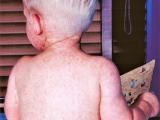May 23, 2011
Study: Veterinarian shortage threatens global food safety
A new study on the numbers of veterinarians in 108 countries found shortages in both the public and private sector that threaten the world's food security and safety, the World Organization for Animal Health (OIE) reported today. The report, presented at the World Assembly of National Delegates in Paris, found that more than half of countries have fewer than 35 public-sector and 100 private-sector veterinarians per million citizens. Food safety systems can be affected when veterinary staffing is inadequate at farms, processing plants, and distribution centers at various stages of the food chain. The study found that resources for selected activities, such as surveillance, are uneven and that veterinary coverage budgets are insufficient, even in countries that depend on animal production for a large share of the country's economy. The OIE's World Assembly began yesterday and runs through May 27.
May 23 OIE press release
OIE veterinary activity and food security study
Pneumonia linked to prolonged viral shedding in 2009 H1N1 patients
In a retrospective study of patients hospitalized with 2009 H1N1 influenza, Italian researchers found that those who had pneumonia shed the virus longer and that antiviral treatment had little effect on the duration of viral shedding. Of 119 patients at a hospital in Rome, 39 were chosen for the study because nasopharyngeal swab samples and related information were available, the researchers reported today in BMC Infectious Diseases. Eleven of the 39 patients (28%) had pneumonia, and 29 (74%) received antiviral treatment. Viral RNA was detectable for 15.4 days after symptom onset in samples from the pneumonia patients, versus 7.5 days in samples from those without pneumonia. Patients who received antiviral treatment had significantly lower levels of viral RNA at days 4 and 5 after illness onset, compared with patients who were not similarly treated, but the overall duration of viral shedding was only "marginally affected' by antiviral treatment. However, among those who received antiviral drugs, the period of viral shedding was significantly shorter for those who started treatment within 2 days after illness onset than for those who received the drugs later. The researchers also found that prolonged shedding was not associated with the emergence of drug-resistant H1N1 strains.
May 23 BMC Infect Dis report
Q fever test cleared for use in US overseas military
The US Food and Drug Administration (FDA) recently cleared the first nucleic acid amplification test to diagnose the early stages of Q fever in overseas military personnel. The unnamed test, developed by Idaho Technology Inc, of Salt Lake City, detects Coxiella burnetii, the bacterium that causes Q fever, within 4 hours, the FDA said. Q fever can be an acute or chronic illness in humans and is an emerging infectious disease in US troops serving in Iraq and other countries. It is typically contracted via exposure to infected animals or contaminated environments. The FDA cleared the test to be used in the Defense Department's Joint Biological Agency Identification and Diagnostic System, which can be used for the rapid detection of a number of bacteria and viruses. The Department of Defense funded the test's development.
May 20 FDA news release
Boston area reports four more measles cases
Four new measles infections have recently been confirmed in the Boston area, raising the area's total to 15, the Boston Globe reported on May 21. One is a Northeastern University student, and two are students at the same elementary school in Brookline. Alan Balsam, director of the Brookline Health Department, told the Globe that the students are related and had not received the measles vaccine due to religious reasons. One child was hospitalized, and both are recovering. The fourth patient is an unrelated adult in the Brookline area, according to a May 20 WCVB TV report. No other details were available.
In other developments, Panamanian officials have confirmed three measles cases in students who recently returned from a trip to Europe, a region where several countries are reporting measles outbreaks, La Prensa reported yesterday. The measles cases are Panama's first in 16 years, the report said. Health clinics in Panama City were open extra hours over the weekend to allow unvaccinated people to be immunized against the disease.
May 22 La Prensa story
Elsewhere, health authorities in Mozambique today launched a 5-day campaign to vaccinate 3.6 million children against measles, Agence France-Presse (AFP) reported yesterday. The country, working toward measles eradication, has dramatically reduced the number of measles cases, from 197,000 in 2007 to 434 in 2010, according to the report.



















